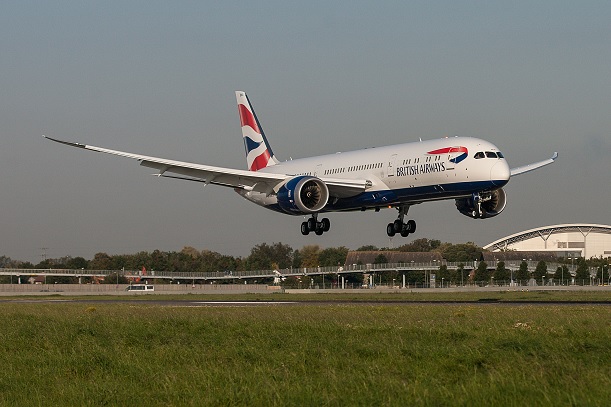Deutsche Telekom and Inmarsat’s in-flight connectivity service is a step closer to taking off after the UK regulator approved the terrestrial component of the network.
The European Aviation Network (EAN) provides Wi-Fi on International Airlines Group (IAG) flights by combining S-band connectivity from an Inmarsat satellite, launched in June, with 4G from a network of terrestrial masts provided by Deutsche Telekom.
Ofcom has now granted a licence for the EAN to transmit in the UK in the 1980-1995 MHz and 2170-2185 MHz frequency bands using complementary ground components (CGCs).
The regulator authorised the base stations on the condition that they be used to complement the satellite component of the EAN rather than as the main source of connectivity.
The network is set to launch later this year. IAG has begun rolling out the technology to its aircraft and aims to equip 90 percent of its short haul fleet by early 2019.
Inmarsat would not disclose the number of national regulators that had granted licences, but said it was waiting for “a final few”. It will give more details in its financial results in November.
Ofcom’s decision will anger many of Inmarsat’s rivals in the satellite industry, including ViaSat, Eutelsat and Panasonic, which have argued that the use of terrestrial masts in the EAN violates the terms of the satellite operator’s spectrum licence.
ViaSat COO Rick Baldridge said in June that the EAN amounted to “a massive public subsidy to one company.”
In a statement circulated to the media, he said: “The intent for the spectrum was to be used for satellite services; however, Inmarsat has used the license to create a terrestrial-based European Aviation Network – what we believe is a misuse of a spectrum license granted to Inmarsat.
“ViaSat believes Inmarsat violated Pan-European government authority by seeking to substitute its own judgement for that of the European authorities and, in effect, unilaterally re-write the original license it was granted under the ‘MSS Decision’.”



